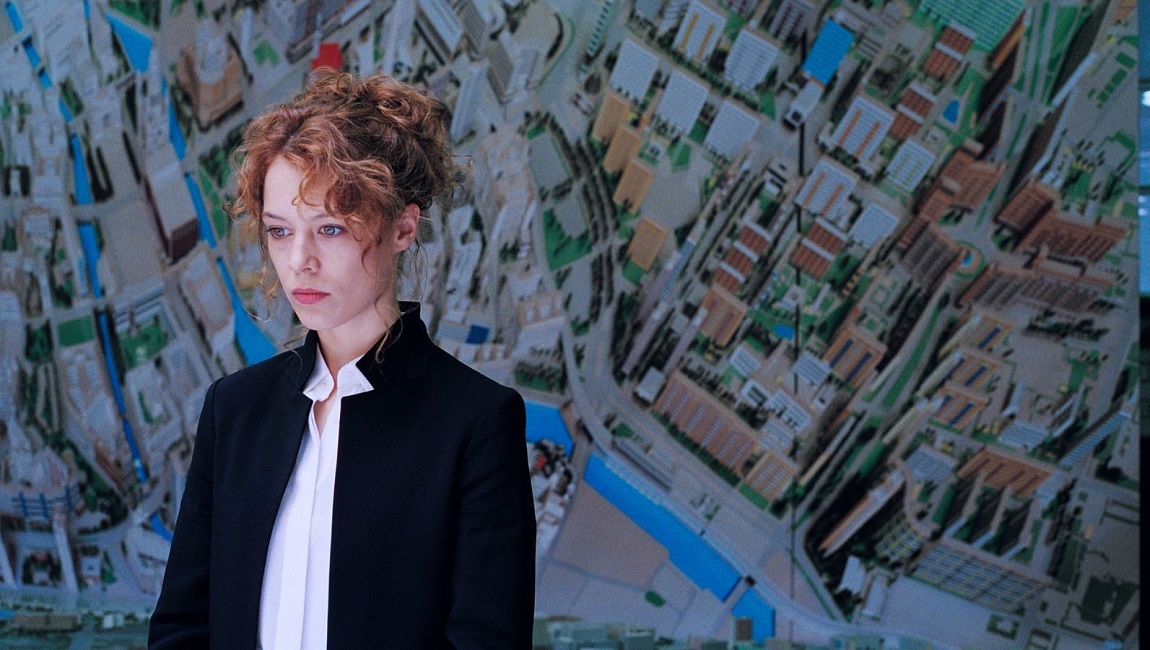There’s nothing much profound going on in Anaïs in Love, but its languorous, late-summer tenor makes for a lightly pleasant watch.
A warm, sandy romance harking back to simpler times, Anaïs in Love revels in a simplicity uncommon for (increasingly competitive) debut films. Anaïs Demoustier plays a young woman that shares her name, a woman whom Daniel (Denis Podalydès) falls for; it is Daniel’s wife Émilie (Valeria Bruni-Tedeschi), however, that enchants Anaïs, and she brings the titular character, in her thirties and on the brink with a past lover, onto the scenic hills of dinner parties and grassy fields. Such begins Charline Bourgeois-Tacquet’s feature, a light-hearted pastiche of classical cinema interrogating the modern idea of restlessness, of how the archetype of young women not content with the lives set for them has changed since so many years before. Once, these restless girls were the ones who travel, who take many lovers — but Anaïs in Love is smart enough to realize that the same dissatisfaction may well be solved today by simply wanting a lover they can connect with on a deeper level. The two women have a connection Anaïs says she’s struggled to find in her boyfriends, more in common despite a decade-wide age gap. Their relaxed camaraderie goes beyond the simple physicality of a sensual beach scene, and the way the two press each other intellectually not only excites them, but also enlivens their dialogue with a jubilant rhythm.
One of three titles at Cannes this year starring Valeria Bruni-Tedeschi, Anaïs in Love finds the actress far removed from her shrieking and hysterical persona in La Fracture; her personality here is more inviting, but not without an uneasy edge regarding her uncertain investment in this newfound relationship with Émilie. Her uncertainty translates to a somewhat inconsistent characterization, as Bourgeois-Tacquet can’t quite play her as a cloying manipulator, or place her solely under the loving confines of traditional society (and in the third act, her near-spastic changes of heart prove gratingly abrupt). In contrast, Anaïs has a more clearly defined role — in terms of the romantic motivations which undergird the script — with Demoustier, previously featured in the director’s playfully comedic short Pauline Enslaved, snugly complementing the latter’s brand of breezy dramedy, seemingly born into the role of a naive romantic and befitting a character bounding towards the new love that has awoken her for the first time in years.
The two lovers are Cassavetian archetypes in a Rohmerian landscape: Anaïs the admirer of an artist, and Émilie the woman in stagnation. Onscreen compatibility works wonders here, as the pair make for steady conversation partners, wonder sparkling in their eyes as they discuss just about anything, from Émilie’s writing to childhood teachers. A sort of midlife coming-of-age — at thirty — befalls Anaïs, disrupting her conservative life plans with the impulses of the moment and prioritizing (perhaps a reaction to the shock of her mother’s cancer) fundamental happiness over frustrated promises of it. She’s a lovely bit of character work on Bourgeois-Tacquet’s part, at once humanly flawed and charmingly entertaining. This light romantic drama isn’t packing any heavy weight with its simple “girl meets man, falls for his wife” set-up and loose, conversational story, but it’s precisely this simple languor, refracted through the late summer light, that makes it such an easygoing watch.
Originally published as part of Cannes Film Festival 2021 — Dispatch 8.







